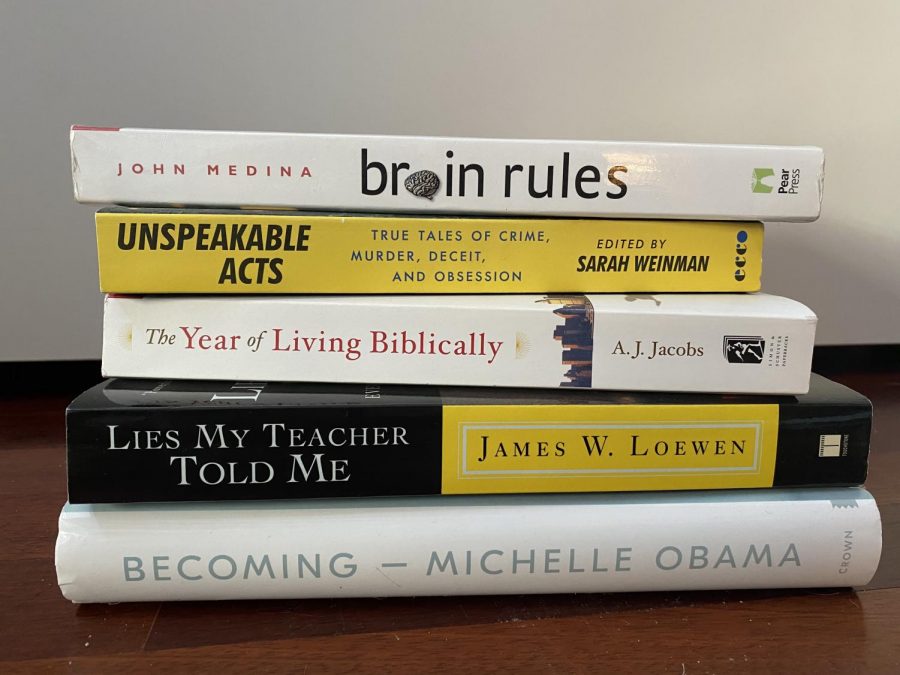Nonfiction books worth reading
A small portion of the nonfiction books I’ve read.
Reading can provide an excellent escape from reality into a world of fiction and fantasy––in fact, most of the books targeted towards young adults fall into these genres. However, many teenagers fail to consider delving into different genres of writing– particularly nonfiction books.
Nonfiction books have a reputation among teenagers as being boring and dragging on, like textbooks. Although this is definitely true for some works––you couldn’t catch me dead reading First Step 2 Forever: My Story by Justin Bieber cover to cover––there are many hidden gems within this genre that are super educational and fascinating.
The first nonfiction book I remember reading and being engaged in (that wasn’t a required reading for school) was What If?: Serious Scientific Answers to Absurd Hypothetical Questions by Randall Munroe. I’d snatched the book from my dad during a period of extreme boredom and desperation, but while reading this book, I was shocked to find that it held my interest––Munroe is an excellent writer who gives hilariously witty answers to all the ludicrous questions he’s asked.
After this experience, I considered delving into the world of nonfiction, and all it had to offer. I’d read some nonfiction before, but mostly memoirs such as Left to Tell (Immaculée Ilibagiza) or Sold (Patricia McCormick). My opinion of this genre was basically that the books within were depressing and, although interesting and eye-opening, not worth spending my free time reading. But now, I’d been exposed to an entirely new world of books: nonfiction that didn’t make me want to lie in bed debating my own existence for days.
The next book I read was Brain Rules by John Medina. This book highlights the 12 principles of the brain and actions we should take as humans to maintain our mental health and awareness as we grow and thrive. It was incredibly motivating to me to hear that exercise, for example, improves mental cognitivity and decreases our chance of developing Alzheimer’s and heart disease, among many other benefits. It was also nice to hear that all the sleeping I’d been doing was actually beneficial to my brain.
Now, most of the books I read are nonfiction. There really are books for everyone– if you like true crime, try Unspeakable Acts by Sarah Weinman. If you’re interested in social ecology or human development, try Yuval Noah Harari’s Sapiens. If you like humor, read Holidays on Ice by David Sedaris or A.J. Jacobs’ humorous biography The Year of Living Biblically. The options are endless, and you’re sure to find some of the most engaging and interesting books you’ve ever read simply by browsing the nonfiction section at your local library or bookstore. Happy reading!






































![Teacher Lore: Mr. Hillman [Podcast]](https://bsmknighterrant.org/wp-content/uploads/2025/03/teacherlorelogo-1200x685.png)




